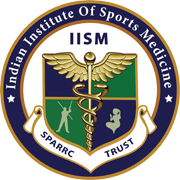Exercise Physiology Lab
Exercise physiology Lab
Exercise physiology plays an important role in the practice of clinical sports medicine. Exercise physiology research has identified important effects of exercise on the body’s systems, tissues, and cells. Objective here is to help athletes achieve peak performance, and non-athletes achieve better health through exercise. There is a continued demand for athletes at all levels to be better, faster, and stronger and it now met using state of the technology. At IISM we use various tools and techniques. CPET is one such solution.
Cardiopulmonary exercise testing (CPET), also known as cardiopulmonary exercise stress testing, is a non-invasive tool that provides a comprehensive evaluation of exercise responses involving the cardiovascular, pulmonary, hematopoietic, neuropsychological, and musculoskeletal systems. Cardiopulmonary exercise testing entails measurements of oxygen uptake (VO2), carbon dioxide output (VCO2), minute ventilation (VE), and other variables in addition to a 12-lead electrocardiography (ECG), blood pressure (BP) monitoring and pulse oximetry. These data are gathered during a maximal symptom-limited incremental exercise test. In certain circumstances, an additional measurement of arterial blood gases may be used to assess pulmonary gas exchange. Measurement of expiratory gases during exercise allows estimation of functional capacity, grades the severity of the impairment, evaluates the response to interventions, tracks disease progression, and assists in differentiating cardiac from pulmonary limitations in exercise tolerance. Cardiopulmonary exercise testing may be carried out on a treadmill or bicycle ergometer. Resting measurements are made for 3 to 5 minutes; followed by 3 minutes of unloaded cycling as a warm-up period. The workload is then increased at a rate designed to allow reaching maximum work capacity in 8 to 12 minutes.

Cardiopulmonary exercise testing (CPET), also known as cardiopulmonary exercise stress testing, is a non-invasive tool that provides a comprehensive evaluation of exercise responses involving the cardiovascular, pulmonary, hematopoietic, neuropsychological, and musculoskeletal systems. Cardiopulmonary exercise testing entails measurements of oxygen uptake (VO2), carbon dioxide output (VCO2), minute ventilation (VE), and other variables in addition to a 12-lead electrocardiography (ECG), blood pressure (BP) monitoring and pulse oximetry. These data are gathered during a maximal symptom-limited incremental exercise test. In certain circumstances, an additional measurement of arterial blood gases may be used to assess pulmonary gas exchange. Measurement of expiratory gases during exercise allows estimation of functional capacity, grades the severity of the impairment, evaluates the response to interventions, tracks disease progression, and assists in differentiating cardiac from pulmonary limitations in exercise tolerance. Cardiopulmonary exercise testing may be carried out on a treadmill or bicycle ergometer. Resting measurements are made for 3 to 5 minutes; followed by 3 minutes of unloaded cycling as a warm-up period. The workload is then increased at a rate designed to allow reaching maximum work capacity in 8 to 12 minutes



Rajeev Tuli
7 years agoExcellent institute in the field of sports medicine
Warm regards to Revered Dr Kanan for his splendid endeavour and initiative in a holistic approach for precious contribution in sport industry.
I wish i could visit the coveted institute, rather could pursue ‘Bachelor in fitness and lifestyle modification’ at my age of 58 years
Deepest regards and best wishes
Rajeev Tuli
NIS Badminton coach, Sports Department, Chandigarh Administration
M.Sc Sport Management(UK)
98X8XXX530
7X409X39XX